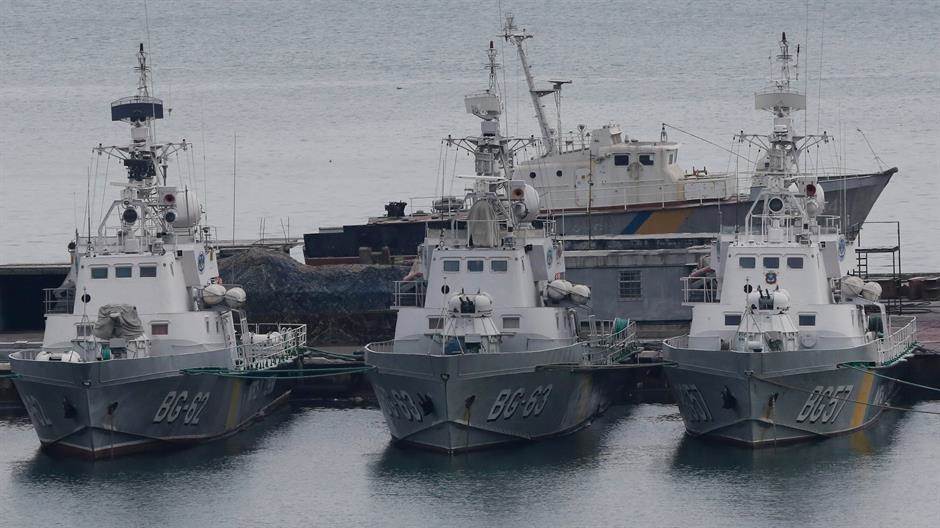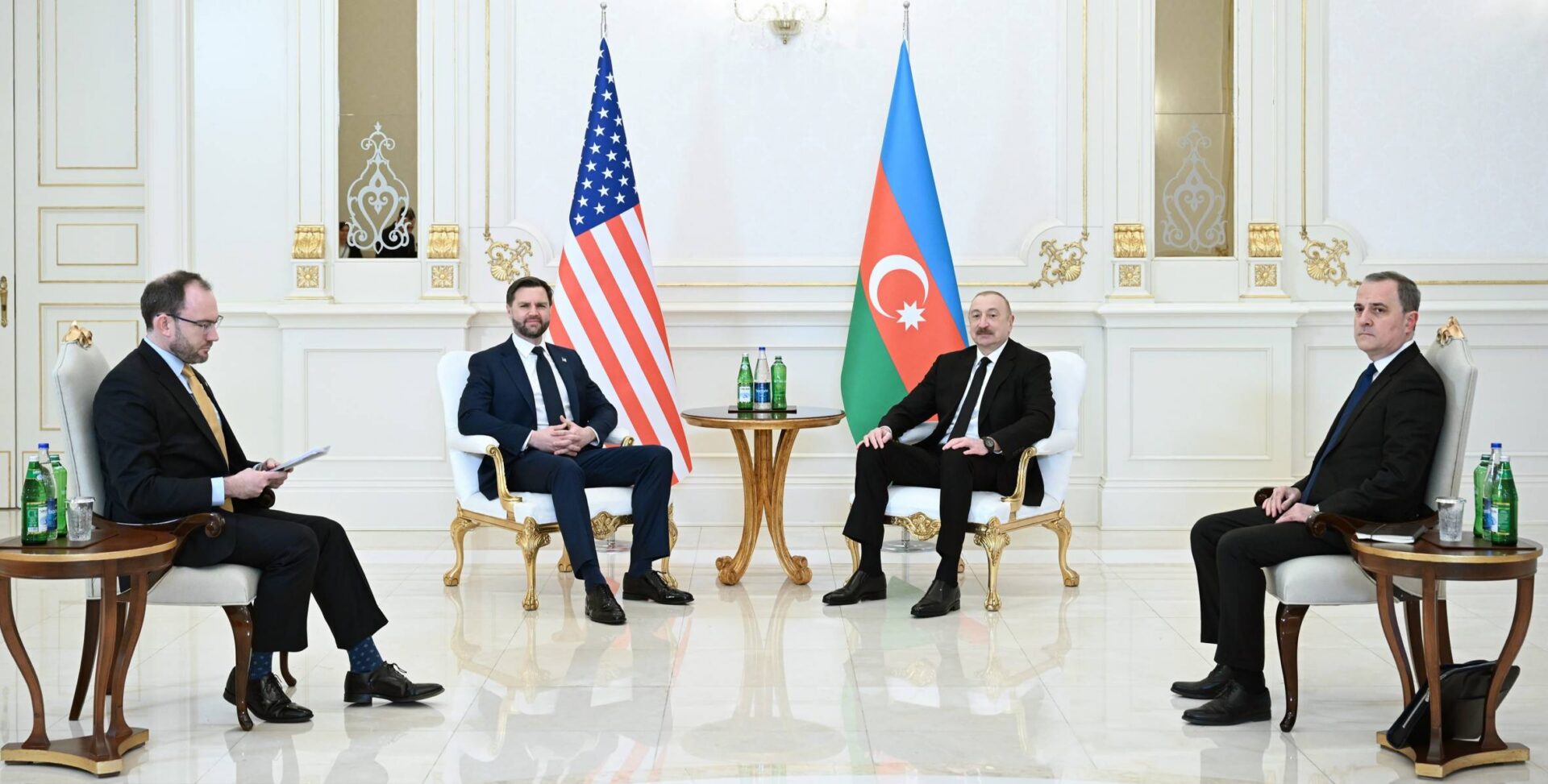
Kerch Strait Incident: Ukraine Wins Court Ruling Against Russia
Kerch Strait Incident: Ukraine Wins Court Ruling Against Russia
On May 25, the Hamburg-based International Tribunal for the Law of the Sea (ITLOS) ordered Russia to release and repatriate to Ukraine all 24 sailors and three naval vessels, seized through military force off Crimea’s coast exactly six months earlier (see EDM, November 26, 2018), in the “Kerch incident” with world-wide reverberations. The ITLOS decision (Itlos.org, May 25, 2019) represents a significant success for Ukraine and for international law. But it is only an initial step in a litigation that Russia has the power to drag out indefinitely or (less likely) to block outright.
Russia does not recognize any jurisdiction other than its own in the Kerch Strait, nor in nearby areas of the Black Sea that are legally Ukrainian but taken over by Russia following its seizure of Crimea. In a show of defiance, the Moscow City Court promptly ruled to prolong the detention of the 24 Ukrainian sailors by another two months, pending further investigation and trial (TASS, May 27), although ITLOS had prescribed that the trial be suspended and the sailors allowed to return to Ukraine “immediately.” The sailors are charged, under Russia’s criminal code, with aggravated illegal crossing of Russia’s maritime state border, although no country but Russia recognizes such a border.
Moscow based its actions, at sea and in court, on two purely unilateral constructions of the legal status of the Kerch Strait. First, that this Strait is no longer a shared waterway of Ukraine and Russia (as per their 2003 bilateral treaty) but has become a Russian internal waterway since 2014 as a result of Russia’s seizure of Crimea. And second, that the Kerch Strait was and is excluded from the purview of international maritime laws and regulations (see EDM, December 3, 5, 10 [1][2], 2018).
Kyiv is litigating this case on the basis of the United Nations Convention on the Law of the Sea (UNCLOS). Ukraine’s government seeks, in the short term, to free the Ukrainian sailors from unlawful detention and, in the longer term, to establish a legal title to free passage through the Kerch Strait for commercial and naval vessels (Ukrainian and international). Accordingly, Kyiv has framed the case as a dispute between Ukraine and Russia over the interpretation and application of UNCLOS articles that accord full immunity to warships and their crews conducting innocent passage. Ukraine has not raised the issue of Russia’s unlawful use of military force. Instead, Ukraine is disputing Russia’s unlawful exercise of jurisdiction.
Ukraine launched this litigation on March 31, 2019, by instituting arbitral proceedings within that Convention’s framework. Kyiv argued that Russia had violated several UNCLOS articles that obligate Russia to accord foreign naval vessels and crews (Ukrainian in the case at hand) complete immunity for innocent passage. Accordingly, Ukraine demanded the release and return of its sailors and vessels from Russia, sought pledges of non-repetition by Russia of such incidents at sea, and claimed full reparation of the damages caused in this incident.
Instituting arbitral proceedings under UNCLOS is a move that should normally lead to an arbitral tribunal being constituted for this specific case. Pending the tribunal’s empaneling (which might take time or be disputed), UNCLOS allows the claimant to request the Hamburg-based ITLOS to prescribe certain provisional measures, so as to protect the claimant from incurring further damage to its rights and interests during that interim period. Indeed, Russia contended that an arbitral tribunal would not have jurisdiction to rule on Ukraine’s claim. Ukraine, therefore, applied, on April 16, to ITLOS to consider and prescribe provisional measures for Russia to carry out, namely: to suspend the criminal proceedings against the 24 Ukrainian sailors, allow them to return to Ukraine, and return the three vessels to Ukraine. The remaining elements of Ukraine’s claim (see above)—namely, pledges of non-repetition of incidents at sea (which seems to be the core of Ukraine’s claim) and the reparation—would subsequently be referred to the arbitral tribunal for adjudication (Itlos.org, May 25).
Russia challenged the tribunal’s jurisdiction and did not attend the court proceedings in Hamburg. Nevertheless, Russia did submit detailed information and arguments in written form, duly commented upon by the tribunal. The latter defined Russia’s status in this case as a “non-appearing party to the proceedings.”
ITLOS issued a set of four decisions (“prescriptions”) on May 25, each of them being adopted by a vote of 19 to 1 on the panel of 20 judges. The dissenting vote came each time from the Russian judge. Pending a decision by the arbitral tribunal that should be constituted for definitive adjudication of Ukraine’s comprehensive claim (see above), ITLOS has prescribed for Russia to immediately release the 24 detained Ukrainian sailors and allow them to return to Ukraine, and to immediately release the three naval vessels and return them to Ukraine. Further, it has prescribed to both Russia and Ukraine to refrain from any action that might aggravate or extend the dispute, until the arbitral tribunal is constituted for final adjudication, as well as to report on compliance with these prescriptions (a point, however, that basically concerns Russia releasing the sailors and vessels) (International Tribunal for the Law of the Sea, “Case Concerning the Detention of Three Ukrainian Vessels; Ukraine v. Russian Federation,” May 25).
These decisions do not meet two secondary requests from Ukraine: that Russia suspend the criminal proceedings against the Ukrainian sailors and that it refrain from initiating new proceedings against them. These items would matter little if Russia releases the sailors; but Russia is not about to do so.
On the diplomatic front, meanwhile, German-led attempts to introduce some kind of an international civilian presence in the Kerch Strait have foundered on Russia’s rejection. Berlin’s attempts were serious but short-lived in December 2018–January 2019. Chancellor Angela Merkel and Foreign Affairs Minister Heiko Maas proposed, first, expanding the mandate of the Organization for Security and Cooperation in Europe’s Special Monitoring Mission in Ukraine (OSCE SMM) to cover the Kerch Strait and Azov Sea as well. Next they proposed a joint German-French observer mission. After that, they proposed sporadic German-French inspections (rather than a presence), this time without covering the Azov Sea. And they also proposed discussing a mandate for such a mission in the “Normandy” format (Russia, Germany, France, Ukraine). Every one of these proposals would have conceded veto powers to Russia in terms of the mission’s mandate and operation. Yet, Moscow turned all these proposals down, and Berlin soon abandoned that approach (see EDM, December 13, 2018; January 21, 2019; January, 22, 2019).


